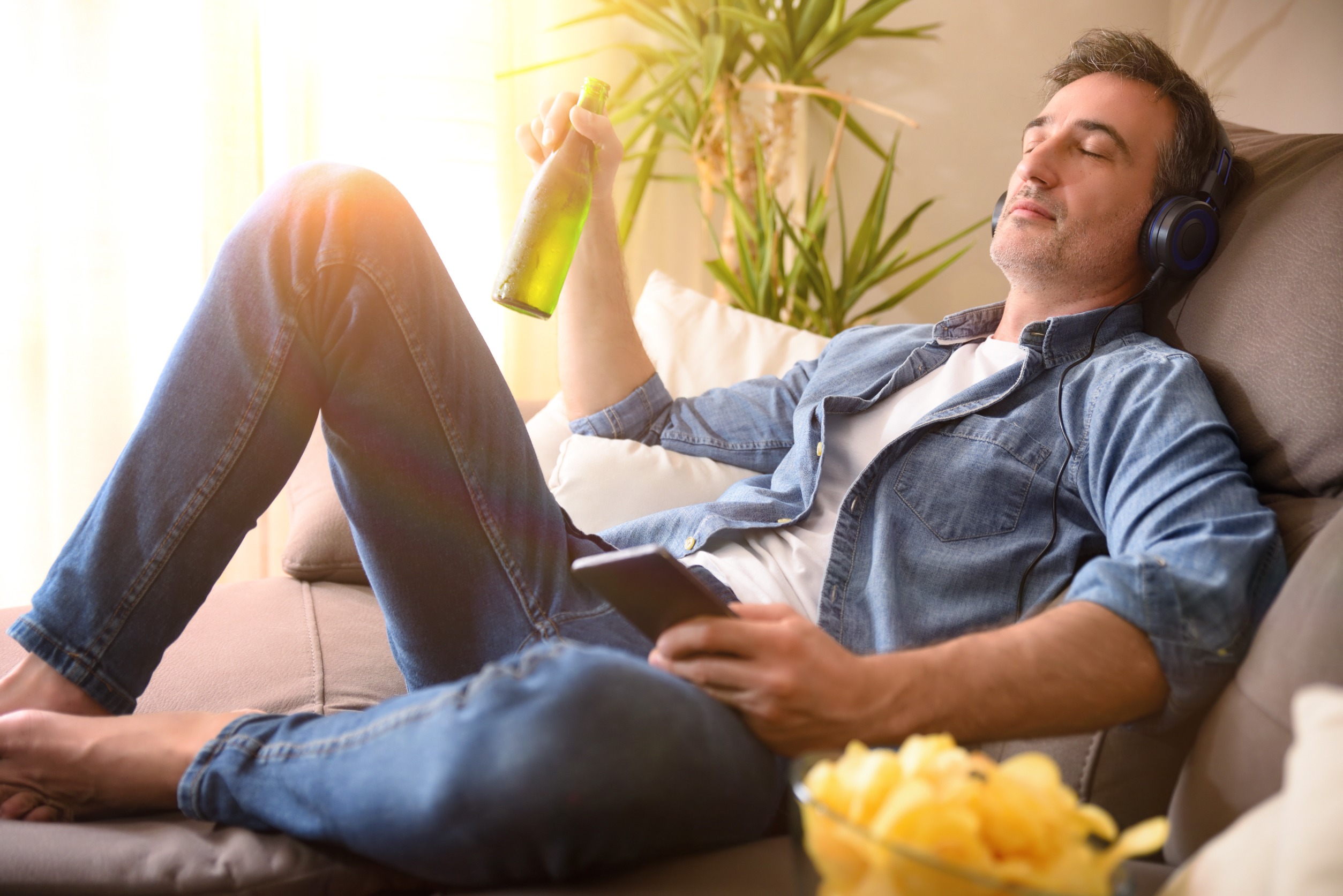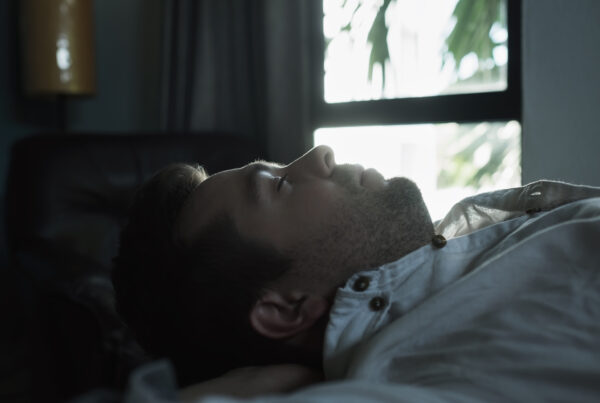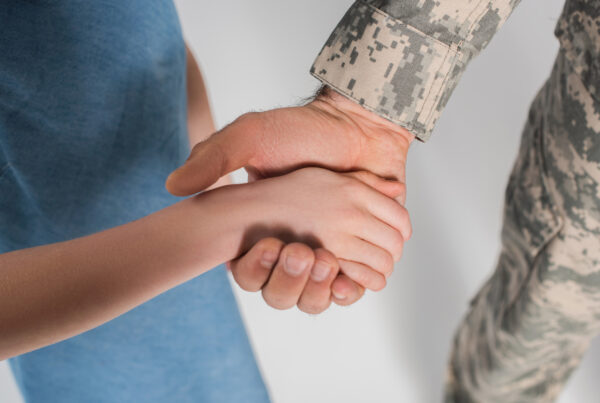”Question: Why do I always need an alcoholic drink to sleep, and does it actually help improve my recovery?
Reading time: 5 Minutes
MWi Hack:
- Learn about the relationship between alcohol and sleep.
MWi Summary:
-
-
-
- Alcohol does not help you sleep. It disrupts the balance between SWS and REM sleep.
- Alcohol can contribute to sleeping disorders and other negative symptoms such as sleepwalking, insomnia, and hot flashes.
- You can minimize alcohol’s affect on sleep by not having a drink within 4-5 hours of bedtime.
-
-
In this article, we’ll cover:
- Why alcohol makes you feel sleepy (but it’s not that good for your sleep quality)
- How alcohol affects the sleep stages of your sleep
- When to stop drinking alcohol to minimize the impact on sleep
- The link between alcohol and sleep disorders
- Summary FAQs
Why alcohol makes you feel sleepy
Alcohol acts as a sedative, inducing sleep and, in some, promoting a tranquilizing effect. It interacts with several neurotransmitter systems which play an important part in the regulation of sleep. Alcohol just before sleep can therefore lead to decreased sleep onset latency – that is, it can make you fall asleep faster. However, as the body processes the alcohol during the later sleep stages, the quality of sleep is affected, and the sleep architecture is changed.
Sleep is also controlled by nerve centers in the brain, containing nerve stems that produce serotonin (a chemical linked to the onset of sleep) and also norepinephrine (which regulates slow-wave sleep). Alcohol consumption changes the function of these chemical messengers resulting in changes to your sleep patterns.
How alcohol affects the sleep stages of your sleep
At most dosages, alcohol typically causes a decrease in sleep onset, that is the amount of time it takes to fall asleep, and the higher the levels of alcohol the deeper the sleep. However, this is offset by fragmented and disrupted sleep in the later part of the night. One night’s sleep is divided into different sleep stages, with each stage serving a specific purpose and also lasting a certain amount of time, typically 90-120 minutes. So, for example, during a night of eight hours of sleep, we could go through 5-6 cycles of sleep stages.
Sleep is also separated into REM (dream stage) sleep and Non-REM (NREM) sleep. REM sleep plays a vital role in the brain’s ability to learn and remember since it is during REM sleep that the brain processes, consolidate, and stores information into long-term memory. However:
- Most studies on alcohol consumption report an increase in slow-wave sleep (SWS) or deep sleep, which consists of stages 3 and 4 of NREM.
- Alcohol at all doses significantly delays the first REM sleep, thus reducing the total amount of REM sleep in a night’s sleep. As pointed out above, as REM sleep is vital in memory consolidation, this makes the reduction of REM sleep all the more tenuous for people’s mental well-being.
- Alcohol creates an imbalance between SWS and REM sleep, thus decreasing sleep quality and perpetuating sleep deprivation as a result.
- Alcohol will wreak havoc on the second half of your night’s sleep as once the body has processed the alcohol, it begins to act as a stimulant.
Sleep Cycle data on alcohol and sleep
During the years 2019, 2020, and 2021, Sleep Cycle’s sleep survey users, on average, tagged alcohol in their sleep notes as around 2.5 percent of their total number of sleep. The sleep notes feature within the Sleep Cycle app allows users to tag a number of activities (such as alcohol consumption, exercise, etc.) that they’ve undertaken before bedtime. This lets our users draw their own conclusions on whether a particular activity led to a poorer or improved quality of sleep and can also let them see certain patterns over time.
The sleep records tagged with alcohol showed no large difference in average bedtime (the time the user went to sleep). It’s important to note that we can’t draw conclusions on individual sleep quality, and data on the quantity of alcohol consumed or the time of day is not available. However, it’s fascinating to learn that the data shows that the average sleep duration increases (11-15 minutes), and perhaps somewhat surprisingly a slightly better morning mood is noted by our users (up between 1.2-2.3 percent).
When should you stop drinking alcohol to minimize the impact on sleep?
Research shows that even late afternoon drinking with a delay of 6 hours before bedtime can disrupt sleep. This is further supported by research that indicates that alcohol has a relatively long-lasting change in circadian rhythm and sleep regulations. However, as a general rule for the odd occasional drink, stick to having a drink with a gap of at least 4-5 hours before bedtime.
Alcohol is metabolized at a rate of approximately one glass of wine per hour, so after 5 drinks at 10 p.m., the alcohol level in your body will be near zero at 3 a.m., but with an increase in arousal after this time. Hence the impact on REM sleep and a contributing factor to sleep fragmentation. So yes, a sneaky lunchtime drink is certainly better than later in the day, but remember that alcohol has a way of manifesting itself on the body’s clock, even if after its left the sleeping brain.
Is there a connection between alcohol and sleep disorders?
Alcohol and sleep disorders have a bi-directional relationship. However, as alcohol abuse progresses, a person’s sleep pattern becomes shifted and disrupted, thus perpetuating the perception that you may need alcohol to help you sleep. In a study interviewing abstinent alcohol-dependent people, a substantial proportion described having been aware that alcohol disturbed their sleep but that they needed to drink to get to sleep. So alcohol use may create sleep disruption, but the sleep disturbance, in turn, elicits greater alcohol use.
The sleep disorders that alcohol exacerbates:Alcohol affects sleep in multiple ways; below are some of the more common side effects and sleep disorders that are antagonized by alcohol consumption:
- Insomnia is the most common sleep disorder in the United States, affecting about one-third of the general population. It is estimated that substance abuse problems, such as alcohol, are behind approximately 10-15% of chronic insomnia diagnoses.
- Daytime sleepiness – In another study looking at user groups who used alcohol as a sleep aid, they had higher mean daytime sleepiness. This underdiagnosed sleep disorder keeps approximately 4-6% of the global population excessively tired during the day, adversely impacting their lives and health.
- Restless Leg Syndrome (RLS) – RLS causes unpleasant or uncomfortable sensations in the legs and an irresistible urge to move them. Alcohol can aggravate RLS as it increases movement and fragmented sleep. Studies show that men and women who consume two or more drinks in a day suffer a two-threefold increase in RLS and thus disrupting sleep.
- Somnambulism (sleepwalking) – this can be an associated sleep disorder alongside RLS and again is impacted by alcohol consumption, in part due to alcohol increasing Slow-wave sleep, which occurs earlier on at night, coinciding when most episodes of sleepwalking occur. So those susceptible to sleepwalking may find alcohol aggravating the problem.
- Hot flashes and waking up hot – Some studies have shown that alcohol use alters sex steroid hormone levels which have been associated with the risk of hot flashes.
- Bathroom breaks at night – apart from being a sedative, alcohol is also a diuretic, which is a substance that promotes increased production of urine. More bathroom visits than usual can be attributed to alcohol (and also the sensation of waking up with a parched throat and hence drinking more water). This all leads to further fragmentation of sleep.
How does alcohol affect obstructive sleep apnea (OSA)
OSA is recurrent episodes of airway obstruction resulting in disruptions in sleep. With sleep onset, relaxation of the muscles of the jaw, tongue, and throat occurs, leading to a narrowing of the upper airway diameter. Essentially changes in the brain’s regulation of upper airway musculature lead to OSA. Alcohol aggravates OSA as it can increase the time between the breaths you take as you sleep. Drops in blood oxygen levels (desaturations) become more pronounced and can in severe cases lead to hypercapnia (increased carbon dioxide), a potentially fatal condition.
Furthermore, alcohol slows and shallows breathing, relaxing the muscles of the throat and further causing the upper airway to collapse. All of which contribute to both snoring and worsened sleep apnea symptoms. A systematic review looking at the impact of alcohol consumption on snoring and sleep apnea concluded that among patients who were susceptible to snoring and OSA, alcohol consumption led to worsening severity of snoring, altered sleep architecture, as well as lower oxygen saturation.
‘Bottoms up’ is simply not a long-term recipe for restful sleep – instead, the bottom line is that although there may be a perceived sense that alcohol promotes faster and deeper sleep, it’s, in fact just a ruse. Clinical studies confirm that alcohol quickly loses its effectiveness as a sedative but retains its sleep-disturbing qualities. When taking a whole night’s sleep into account, the restful and reinvigorating sleep we all need and rely on instead deteriorates and, over time, disrupts our body clock.






